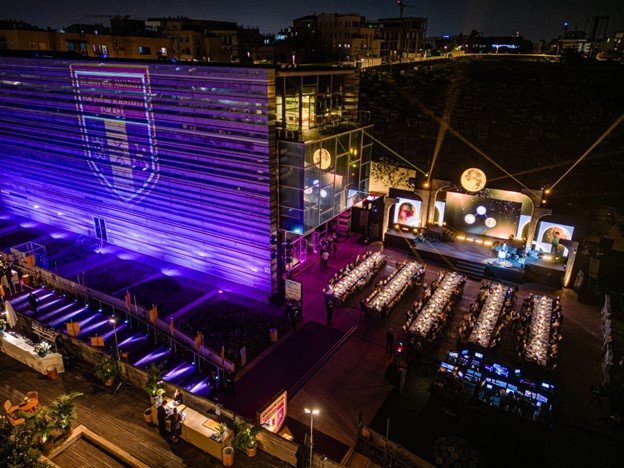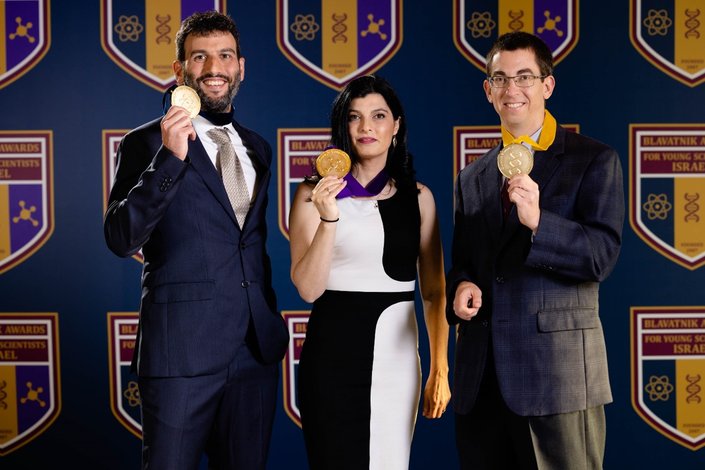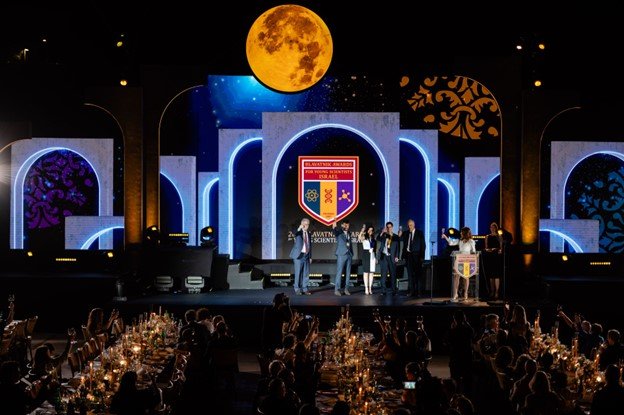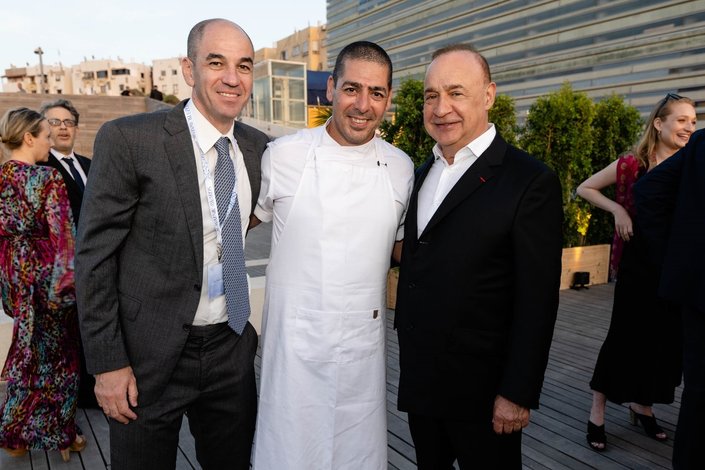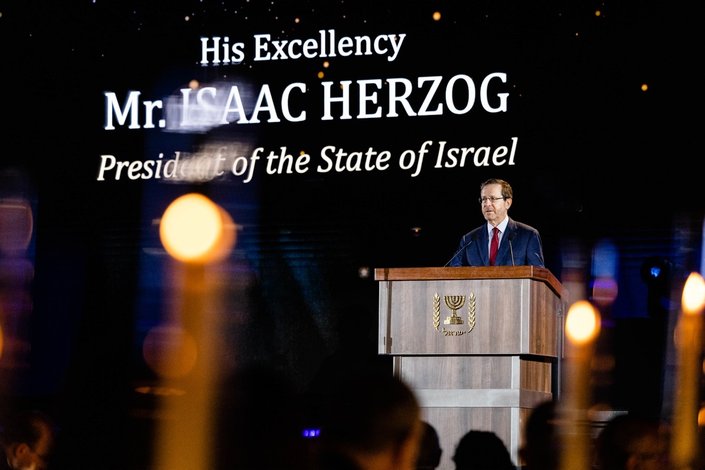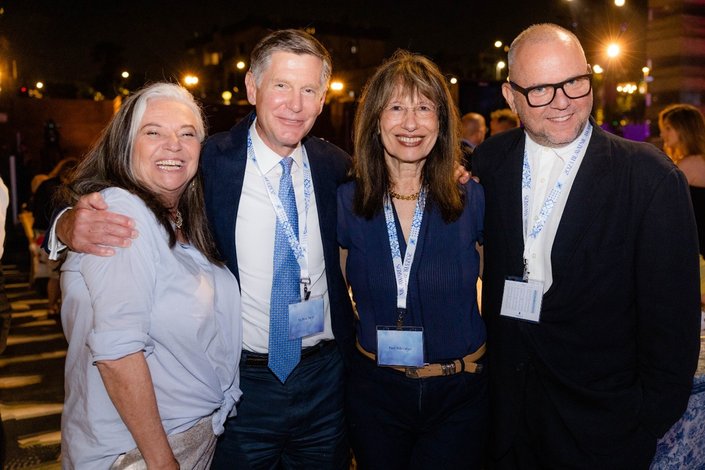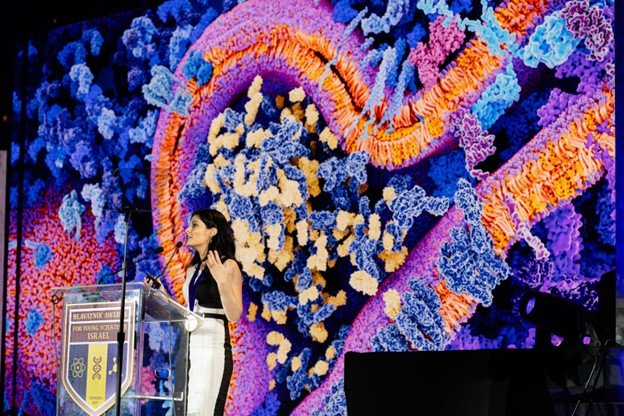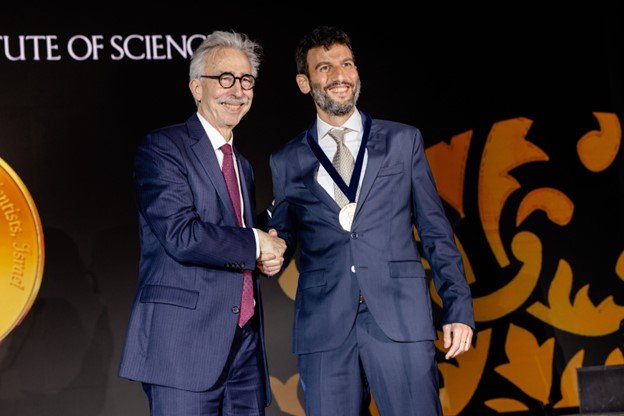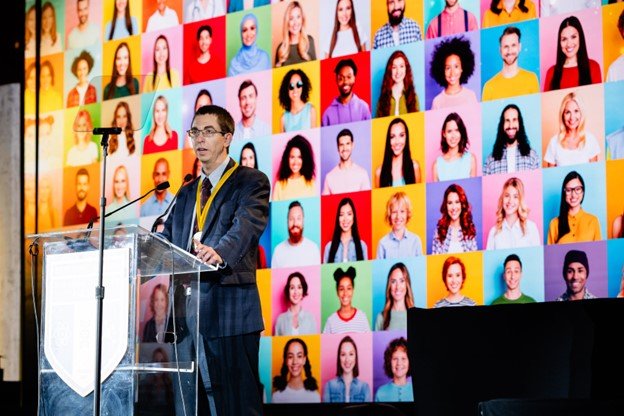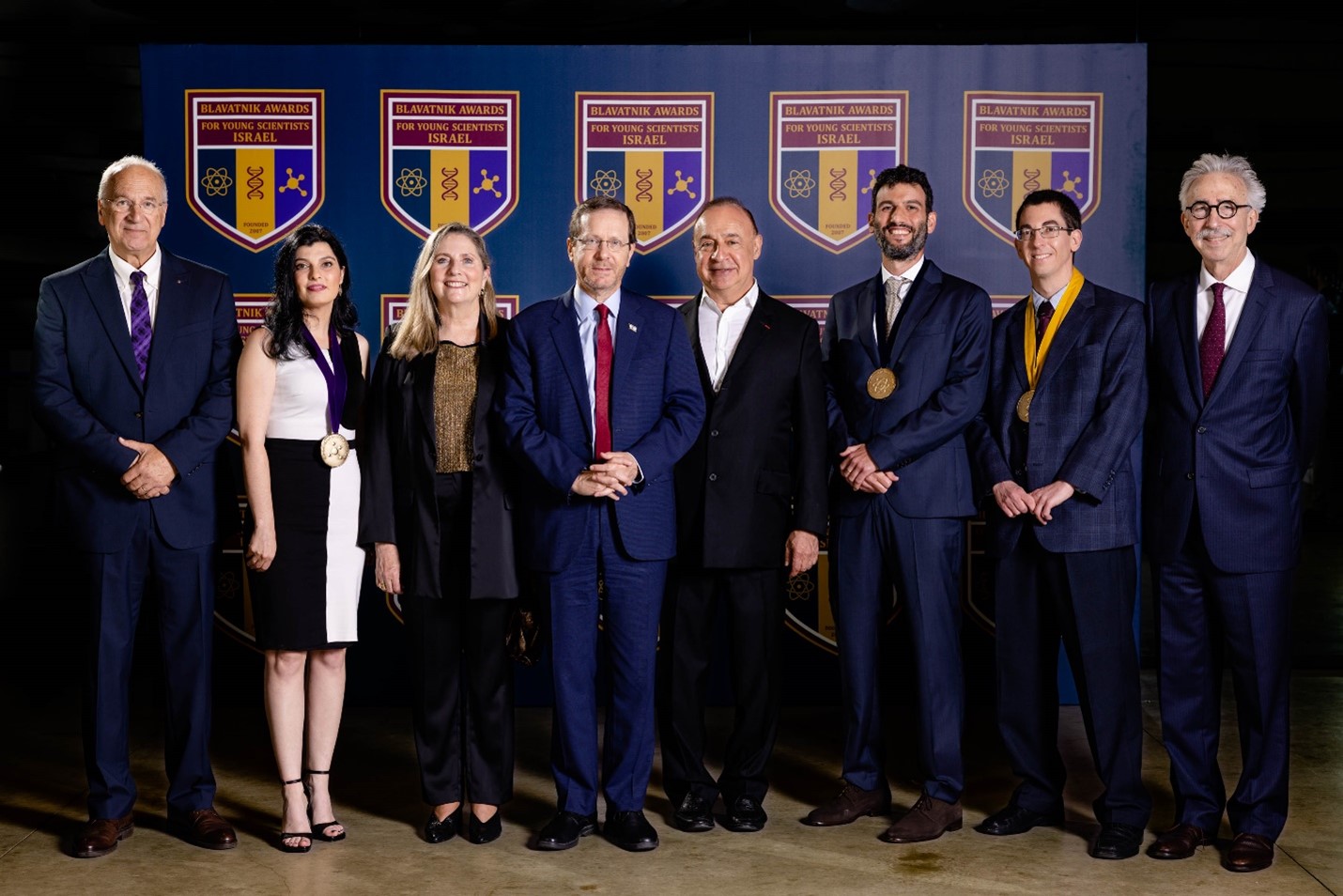 (Left to Right) IASH President David Harel, Chemistry Laureate Rina Rosenzweig, Michal Herzog and Israel President Isaac Herzog, Len Blavatnik, PS&E Laureate Zvika Brakerski, Life Sciences Laureate Shai Carmi, NYAS President & CEO Nicholas Dirks
(Left to Right) IASH President David Harel, Chemistry Laureate Rina Rosenzweig, Michal Herzog and Israel President Isaac Herzog, Len Blavatnik, PS&E Laureate Zvika Brakerski, Life Sciences Laureate Shai Carmi, NYAS President & CEO Nicholas Dirks
The New York Academy of Sciences, in collaboration with the Israel Academy of Sciences and Humanities and the Blavatnik Family Foundation, hosted the fifth ceremony for the Blavatnik Awards for Young Scientists in Israel on June 7, 2023. The gala event was held at the Peres Center for Peace & Innovation in Tel Aviv for the second year and was attended by Israel’s top leaders in business, academia and industry. Israeli TV News Anchor, Tamar Ish-Shalom, from Reshet 13, served as Presenter of Ceremonies. Renowned Israeli chef, Yossi Shitrit, catered the ceremony.
Israel’s President Isaac Herzog attended the ceremony in-person and in his remarks reflected on Israel’s historical investment in science by the first President of Israel, Chaim Weizmann, who saw great promise in science to bringing prosperity to the region. David Harel, President of the Israel Academy of Sciences and Humanities, congratulated the Laureates and thanked the jury and the Scientific Advisory Council. Academy President and CEO, Nicholas Dirks, spoke about how the Blavatnik Awards honorees are improving our world: “The world needs science and scientists. And we need scientists everywhere to be working together to tackle the world’s growing list of challenges. These awards are so important, for they support the work of scientists who look beyond the walls of their labs, and beyond geographical borders to think creatively and take risks in their research. This is where solutions will be found”.
- In the category of Physical Sciences & Engineering, Zvika Brakerski from the Weizmann Institute of Science was recognized for developing the first efficient encryption algorithm that allows cloud computers to perform computations on encrypted data without the need to first decrypt them. His algorithm has enormous potential to improve the security of cloud computing. In addition, he has also developed new cryptography algorithms to verify the output of quantum computations.
- Also, from the Weizmann Institute of Science, Rina Rosenzweig received the Blavatnik Award in Chemistry for discovering the regulatory mechanism by which a particular class of proteins, “chaperone” proteins, drive the innate ability of our cells to prevent and reverse protein aggregation—a phenomena associated with many neurodegenerative conditions including Alzheimer’s, Parkinson’s, and Huntington’s diseases. Harnessing and amplifying natural methods to reverse protein aggregation in cells paves the way to treatments for these conditions.
- In Life Sciences, the first Laureate from The Hebrew University of Jerusalem, Shai Carmi, was honored for his fundamental contributions to the fields of population and medical genetics. In medical genetics, he has reported the first evaluations of a new technology for genetic testing of preimplantation embryos for complex (adult) diseases and traits. Through his groundbreaking work in population genetics, he has rewritten the demographic history of medieval Ashkenazi Jews.
Each Laureate came to the stage to receive their Blavatnik Awards medal from Nicholas Dirks. Afterwards, the Laureates each gave a ten-minute presentation on their award-winning discoveries to the audience. The evening also featured the all-female classical instrumental group, Havriot, who composed a song in honor of the 550th anniversary of Copernicus’s discovery of the sun being the center of the solar system, not the earth as was previously thought.
Ceremony presenter Tamar Ish-Shalom, closed the evening’s festivities with the Blavatnik Awards in Israel tradition of gathering the Academies' Presidents and the Laureates on stage to make a toast to science in Hebrew, “L’Chaim; To Science!”
